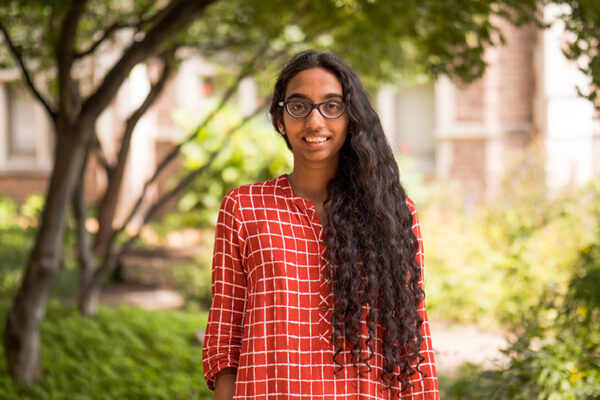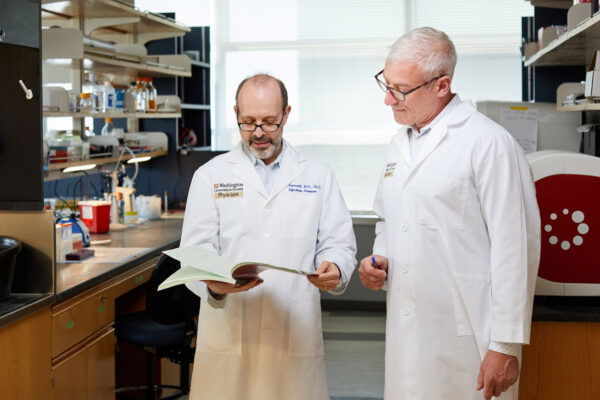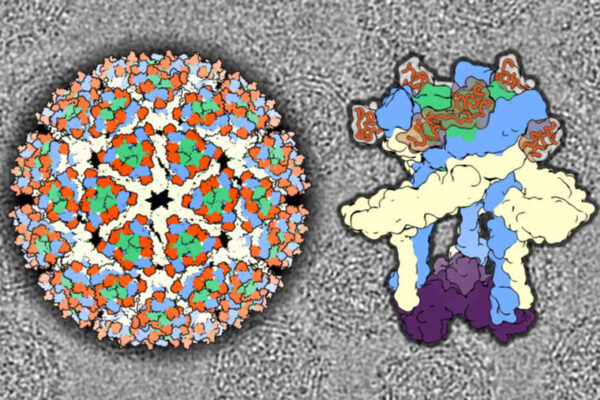Two scientists at Washington University in St. Louis are among the 120 members and 24 international members recently elected to the National Academy of Sciences in recognition of their distinguished and continuing achievements in original research. Election to the academy is considered one of the highest honors accorded a U.S. scientist or engineer.
Washington University’s new academy members are Michael S. Diamond, MD, PhD, the Herbert S. Gasser Professor of Medicine at the School of Medicine, and David C. Queller, PhD, the Spencer T. Olin Professor of Biology in Arts & Sciences.
“Michael Diamond and David Queller are leading scientists in their fields, and this important recognition honors their distinguished and continuing achievements in original research,” said Chancellor Andrew D. Martin. “I extend my enthusiastic congratulations to both on the important recognition they have received by their election to the National Academy of Sciences.”
Michael S. Diamond
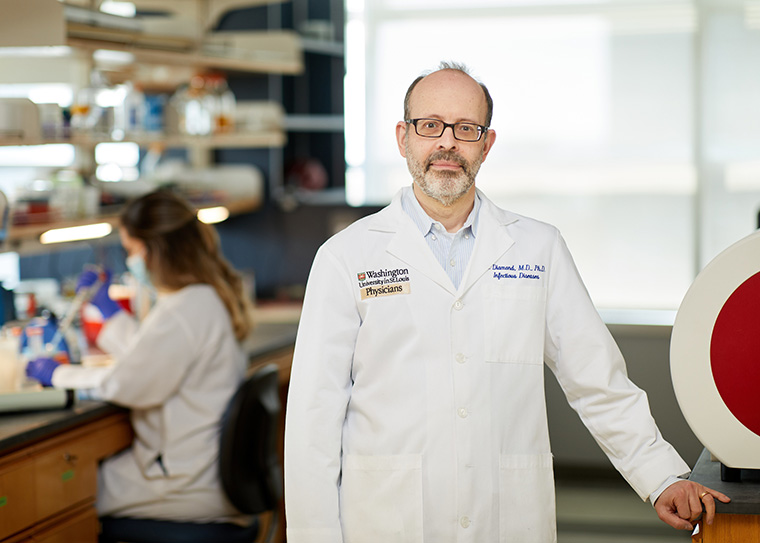
Diamond is an internationally recognized expert on emerging viruses, including SARS-CoV-2, which causes COVID-19; flaviviruses such as Zika, dengue and West Nile viruses; and alphaviruses such as Chikungunya and the equine encephalitis viruses. He and his group seek to understand how such viruses cause disease and evade the body’s defenses.
During the COVID-19 pandemic, Diamond developed a mouse model of COVID-19 infection that was used by researchers around the world. His work on the antibody response to infection led to multiple drug and vaccine candidates, one of which — created in collaboration with David T. Curiel, MD, PhD, a distinguished professor of radiation oncology — was developed into an intranasal vaccine and approved for use in India. As each new variant arose and spread, Diamond’s lab assessed how it fared against antibody-based therapeutics and natural and vaccine-induced immunity, and the findings of this research informed public policy.
Diamond is known for his groundbreaking work on Zika virus, which can cause babies to be born with tiny, misshapen heads. With colleagues, Diamond developed the first animal model of Zika infection during pregnancy, identified protective antibodies against the virus and helped to develop a Zika vaccine that is now in clinical trials. He also studies alphaviruses, mosquito-borne viruses that can cause encephalitis or arthritis. His lab identified new receptors alphaviruses use to infect cells, laying the groundwork for treatments for these debilitating and sometimes deadly infections.
Diamond is also a professor of molecular microbiology and of pathology and immunology, an associate director for the Andrew M. and Jane M. Bursky Center for Human Immunology and Immunotherapy Programs, and a director of the Center for Vaccines & Immunity to Microbial Pathogens. He is an elected member of the American Society for Clinical Investigation, the Association of American Physicians, the American Association for the Advancement of Science, and the National Academy of Medicine, and a recipient of the Stanley J. Korsmeyer Award from the American Society for Clinical Investigation.
Diamond earned his bachelor’s degree in political science from Columbia University in 1985, followed by his medical and doctoral degrees from Harvard University in 1994. He completed a residency in internal medicine, research fellowships in molecular and cell biology and in infectious diseases, and a clinical fellowship in infectious diseases before joining the faculty at Washington University School of Medicine in 2001.
David C. Queller
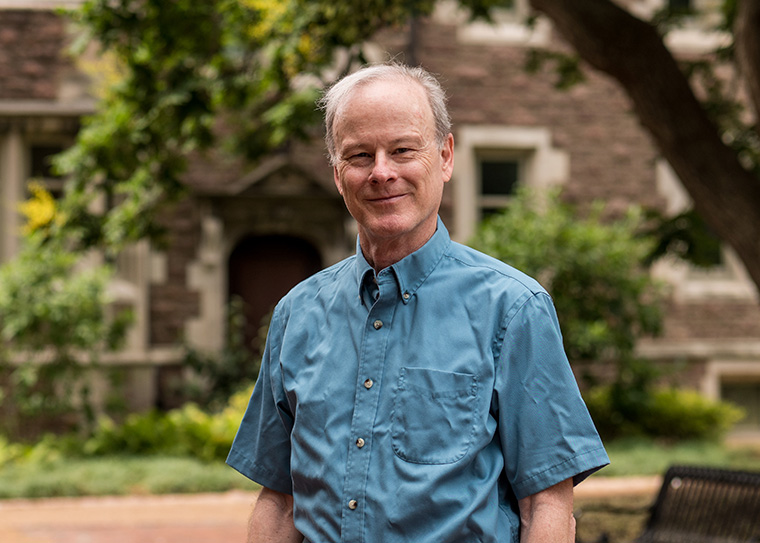
Queller is one of the country’s foremost evolutionary biologists. He works primarily on social evolution. His research has applications in experimental evolution, genomics and modeling.
Queller’s theoretical work has centered on kin selection. He developed methods that have been widely applied for estimating relatedness. Queller also has developed models of kin selection and its relation to other social forces, including models of the role of viscosity in kin selection; of kin conflict in seeds; of the evolution of eusociality via demographic advantages; and of evolutionary conflicts and the fundamental theorem of natural selection.
Queller also has conducted empirical research on social insects and social amoebas together with his wife and collaborator, Joan E. Strassmann, the Charles Rebstock Professor of Biology in Arts & Sciences. Strassmann is also a member of the National Academy of Sciences.
The Queller-Strassmann research group has published influential research showing the ubiquity of relatedness in social insects, its importance in both cooperation and conflict, the evolution of cheating in social amoebas and its control by high relatedness, kin discrimination, pleiotropy and the evolution of resistance.
The group is additionally studying genomic imprinting, amoeba-bacteria farming symbiosis, the units of selection and the evolution of organismality. Much of their current work centers on the social amoeba Dictyostelium discoideum.
Queller graduated from the University of Illinois in 1976 with a bachelor’s degree in the history and philosophy of science. He earned a PhD in biology in 1982 from the University of Michigan. His dissertation applied sexual selection theory and kin selection theory to plants. After a postdoctoral fellowship at the University of Sussex in the United Kingdom, he spent many years on the faculty at Rice University, moving to Washington University in 2011.
Queller is a fellow of the Animal Behavior Society, the American Academy of Arts & Sciences and the American Association for the Advancement of Science. Among other honors, Queller won the American Society of Naturalists Young Investigator Award in 1985 and a John Simon Guggenheim Memorial Fellowship in 1988.
